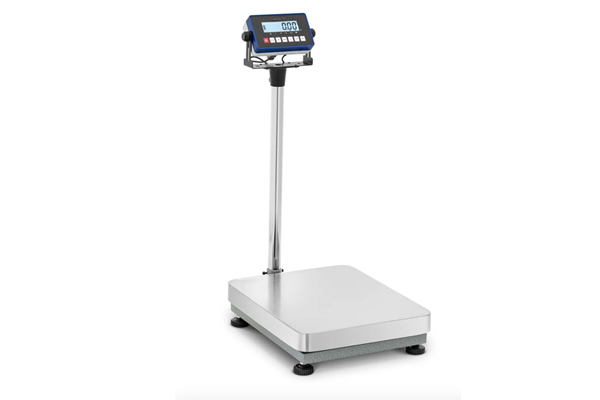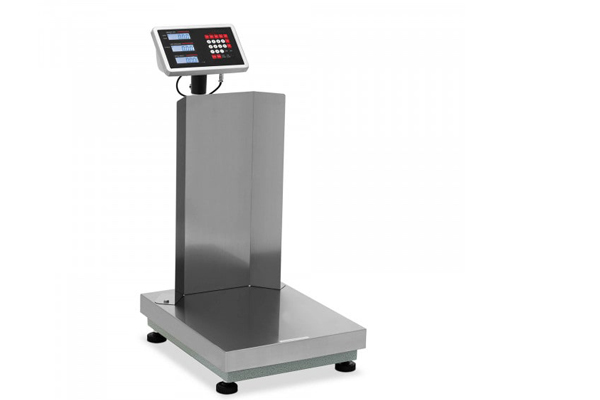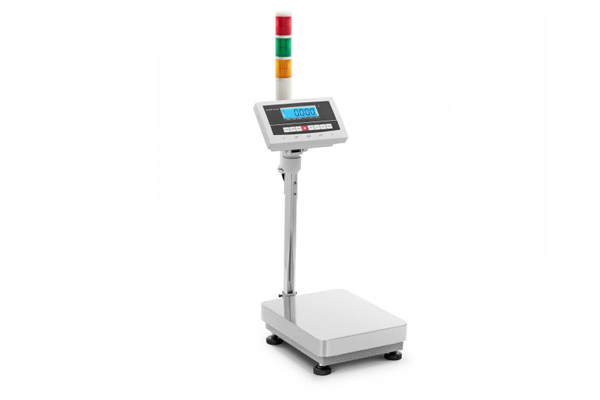In today’s fast-paced industrial and commercial environments, accurately measuring weight is essential for efficiency, safety, and cost control. A platform weighing scale, also known as a floor scale, is a versatile tool designed to handle a wide range of weighing tasks, from small packages to heavy pallets.
Whether in factories, warehouses, retail stores, or healthcare facilities, platform scales play a critical role in ensuring accurate measurements, streamlining operations, and maintaining quality standards. This article explores the various applications of platform weighing scales and why they are an indispensable part of modern weighing solutions.

Platform Weighing Scale Overview
What Is a Platform Weighing Scale
A platform weighing scale is a device that measures the weight of large or heavy objects. It uses a flat platform where users place items for weight measurement. The main components include load cells, strain gauges, and a digital display. Load cells sense the force from the object and convert it into an electrical signal. Strain gauges help detect changes in pressure on the platform. The digital display shows the final weight reading.
Platform scales come in two main types: mechanical and digital. Mechanical platform scales use springs and levers to measure weight. They show results on a dial or pointer. Digital platform scales use electronic sensors and provide readings on a screen. Digital models offer better accuracy and are easier to read.
Key Features
Platform scales have several important features. Most models have a sturdy platform that supports heavy loads. The surface is often made of steel for durability. Many platform scales include adjustable feet for stability on uneven floors.
Some models have a tare function. This feature lets users subtract the weight of containers or packaging. Many digital platform scales offer advanced options like data storage and connectivity. These features help users track weight measurement over time.
Platform Scale Uses and Applications
Industrial Applications
Industrial platform scales play a vital role in factories and manufacturing plants. Workers use these weighing devices to measure raw materials, finished products, and heavy machinery parts. The platform weighing scale provides reliable weight measurement for bulky items that standard scales cannot handle.
Many industrial scales support high capacities and withstand tough environments. Digital platform scales offer quick readings and help maintain accuracy during busy operations. Companies rely on these weighing instruments to track inventory and control production quality.
Agriculture and Farming
Farmers use platform scales to weigh livestock, feed, and harvested crops. These weighing applications help monitor animal health and manage food portions. The platform weighing scale allows easy weighing of large animals, such as cattle or sheep, which are unsuitable for smaller scales.
Electronic platform scales provide accurate weight measurement for grains and produce. Digital models store data for farm records and help farmers make informed decisions. Industrial platform scales also assist in weighing fertilizers and equipment.
Retail and Food Processing
Retail stores and food processing facilities depend on platform scales for daily operations. Workers use these weighing devices to measure bulk ingredients, packaged goods, and large containers. The platform weighing scale ensures products meet weight requirements before sale or shipment.
Digital platform scales offer fast and precise readings, which help maintain quality control. Electronic platform scales can connect to computers for easy tracking and reporting. Industrial platform scales handle high volumes and support efficient workflow.
Shipping and Logistics
Shipping centers and logistics companies use platform scales to weigh parcels, pallets, and freight. The platform weighing scale helps determine shipping costs and prevents overloading vehicles. Workers rely on industrial platform scales for quick and reliable weighing of large shipments.
Digital platform scales provide instant readings and reduce errors in shipping documents. Electronic platform scales support barcode scanning and data transfer for better tracking. Accurate weight measurement improves delivery speed and reduces risk.
|
Application Area |
Typical Items Weighed |
Platform Scale Benefit |
|---|---|---|
| Industry | Machinery, raw materials | High capacity, durability |
| Agriculture | Livestock, crops, feed | Large surface, accuracy |
| Retail/Food | Bulk goods, containers | Fast readings, quality |
| Shipping/Logistics | Parcels, pallets, freight | Efficiency, reliability |
Platform scales serve many industries and support a wide range of weighing tasks. Their versatility and accuracy make them essential for modern business operations.
How Digital Platform Scales Work

Components and Technology
Digital platform scales use advanced technology to deliver precise weight measurements. The main components include a sturdy weighing platform, load cells, and a digital display. Load cells act as sensors that detect the force applied by the object on the platform.
Each load cell contains electronic strain gauges. These gauges change their electrical resistance when pressure is applied. The scale’s electronic circuit reads these changes and sends the data to the digital processor.
The digital processor converts the signal into a readable number. The display shows the weight in clear digits. Many digital platform scales also feature buttons for functions like tare and unit conversion.
Operation Process
A user places an item on the platform. The load cells sense the weight and create an electronic signal. The digital processor receives this signal and calculates the exact weight.
The digital display shows the result almost instantly. Some digital platform scales store the data or send it to a computer for record-keeping. Many models allow users to reset the scale or change measurement units with simple controls.
Digital platform scales often include extra features. Some have alarms for overload protection. Others connect to printers or barcode scanners for easier tracking.
|
Step |
Action Performed |
|---|---|
| 1. Place Item | User puts object on the platform |
| 2. Sense Weight | Load cells detect force |
| 3. Signal Process | Electronic circuit processes the signal |
| 4. Display Result | Digital screen shows the weight |
Digital platform scales combine electronic sensors and digital technology for fast, accurate, and reliable weighing. These features make them essential tools in many industries.
Benefits of Platform Scales

Accuracy and Precision
Platform scales deliver high-accuracy measurements in many weighing tasks. They use electronic sensors to detect even small changes in weight. This accuracy helps workers avoid mistakes in weight measurement. Electronic platform scales show results instantly, which reduces human error. Many industries rely on platform scales for precise weighing of large or heavy items. Accurate readings support safety and quality in every application.
Durability and Versatility
Manufacturers design platform scales to handle tough environments. Most models feature steel platforms that resist damage from heavy use. Electronic platform scales work well in factories, farms, and stores. Their versatility allows weighing of many types of items, from machinery to livestock. Users can choose platform scales with different capacities for specific applications. Adjustable feet and overload protection add to their durability.
|
Feature |
Benefit |
|---|---|
| Steel platform | Withstands heavy loads |
| Versatile use | Supports various applications |
| Overload alarm | Prevents damage |
Platform scales adapt to changing needs in business and industry. Their strong construction ensures long-lasting performance.
Efficiency & Cost
Platform scales improve efficiency in weighing operations. Workers can weigh large items quickly and get instant results. Electronic platform scales often connect to computers for easy record-keeping. This saves time and reduces paperwork. Accurate weighing helps companies avoid costly mistakes and overloading. Many platform scales offer features like tare and unit conversion, which simplify tasks.
Platform scales combine accuracy, durability, and versatility. They support efficient weighing and help businesses save money. Their role in weight measurement makes them essential tools in many industries.
Conclusion
In conclusion, platform weighing scales are essential tools across a wide range of industries and applications. From industrial production and logistics to retail, these scales provide accurate, reliable, and efficient weight measurements that help streamline operations, maintain quality, and ensure safety.
Whether you are handling heavy pallets in a warehouse or measuring raw materials in a factory, a platform weighing scale offers a practical and versatile solution. Investing in the right scale can significantly improve workflow efficiency and accuracy, making it an indispensable part of modern weighing practices.
